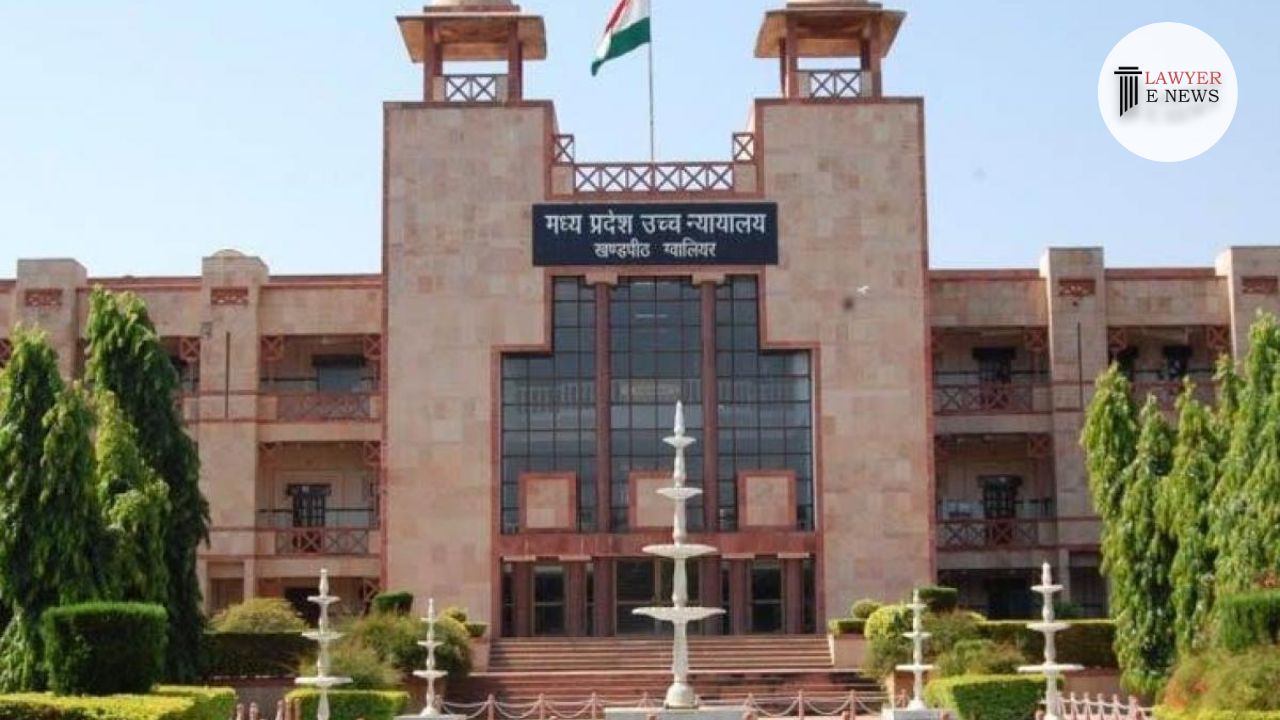-
by Admin
15 February 2026 5:35 AM



Madhya Pradesh High Court, in Rohan Naik & Others v. State of Madhya Pradesh, dismissed a petition under Section 482 of the Criminal Procedure Code (CrPC) seeking quashing of an FIR and criminal proceedings involving allegations of rape under Section 376 of the Indian Penal Code (IPC). The court emphasized that crimes like rape are heinous offenses that cannot be quashed on the basis of compromise, as they are not private matters but affect public interest and the dignity of women.
The case stemmed from an FIR filed by the prosecutrix, alleging that the petitioner, Rohan Naik, had physically exploited her under the false pretext of marriage. According to the prosecution, Naik had developed a romantic relationship with the prosecutrix, frequently took her to various locations, and engaged in sexual relations while assuring her of marriage. However, when disputes arose between them, Naik allegedly assaulted her and threatened to release objectionable videos to coerce her into continuing the relationship. Subsequently, an FIR was registered against Naik under Sections 376, 506, 376(2)(n), and 201 of the IPC.
Naik petitioned the High Court to quash the FIR and chargesheet, arguing that the prosecutrix was a consenting adult and that both parties had amicably resolved their differences.
The core legal issue was whether the FIR and subsequent criminal proceedings involving allegations of rape could be quashed based on a settlement between the parties. The petitioners relied on the fact that the prosecutrix had settled the matter and no longer wished to pursue the case.
However, the State opposed the quashing, citing that rape is a serious offense that cannot be compromised, as it affects not only the victim but also public morality and societal interests. The court considered multiple judgments from the Supreme Court, including Gian Singh v. State of Punjab (2012), Narinder Singh v. State of Punjab (2014), and State of M.P. v. Laxmi Narayan (2019), all of which underscored that heinous crimes like rape cannot be quashed merely because the victim and the accused have settled.
The High Court, presided over by Justice Prem Narayan Singh, meticulously examined prior judgments that discussed the exercise of inherent powers under Section 482 of the CrPC. The court referred to Gian Singh v. State of Punjab, which held that while Section 482 provides wide powers to quash proceedings, it should not be used for heinous crimes like rape that have a profound societal impact. Crimes of this nature are not private disputes and therefore cannot be resolved merely through compromise between the parties.
The court also cited Shimbhu v. State of Haryana (2014), where the Supreme Court categorically stated that rape is an offense against the dignity of a woman and cannot be subject to compromise, as such actions degrade the integrity of the victim and society at large. The court further noted that compromise in such cases could lead to coercion or pressure on the victim, and it would be against the interests of justice to allow the quashing of proceedings on these grounds.
Addressing the specific facts of the case, Justice Singh noted that the petitioner had not only engaged in physical relations with the prosecutrix under false pretenses but had also resorted to threats of releasing objectionable material to compel her compliance. The court emphasized that such conduct, which targets the integrity and dignity of a woman, cannot be trivialized or dismissed due to a subsequent compromise.
In light of the serious nature of the offenses, the court ruled that the petition for quashing the FIR and criminal proceedings under Section 482 of the CrPC was without merit. The court dismissed the petition, underscoring that crimes like rape, which violate the sanctity and dignity of women, cannot be quashed based on compromise, as they have a profound impact on society.
Date of Decision: September 20, 2024
Rohan Naik & Others v. State of Madhya Pradesh
